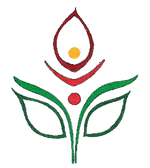We may not at all like them, but we can wish them to be free You know those books that are so good, that arrive in your life at just the perfect time, speaking exactly to what you need to learn or hear or act on at that time. Those books that one time through was just the beginning. Going back through them over and over reveals more. “The book fairies put that in there since the last time I read this,” a friend of mine would say at our weekly book study group. This month’s Post-It Note that I have carried with me everywhere is key to not only how we relate with other human beings, but how we relate to our own being. Have you ever considered how you define yourself? The word define is from Latin, “ dē + fīniō (“set a limit, bound, end”). So many times, we limit ourselves, set a boundary, as if it were the event horizon from which there is no escape, an end there is seemingly no going past, as if we might fall off the edge and no longer be. I have spent the past 8 months considering what I have been defining myself by. Yoga, strength building, and endurance conditioning are all excellent opportunities for this kind of self-inquiry. When you are practicing in class, when you are (or are not) practicing outside of class, are you ever giving attention to what the poses, the movement, the sensations, the effort trigger? Are you aware of the body sending messages to the brain, “This body is good,” “this body is bad,” “this body is neutral”? Or “This sensation is good,” “this sensation is bad,” “this sensation is neutral.” Carry that along to “This effort is good,” “this effort is bad,” “this effort is neutral.”  Doug Peacock is an American author, filmmaker, wildlife activist, and Vietnam War veteran. He is best known for his work dedicated to grizzly bear recovery in the lower-48, his book Grizzly Years: In Search of the American Wilderness and serving as the model for the well-known character George Washington Hayduke in Edward Abbey's novel The Monkey Wrench Gang. Doug is the co-founder of several conservation organizations including Round River Conservation Studies and Save The Yellowstone Grizzly. A culture like ours, we fear what we don’t know, and we really hate what we fear. To know the bear, to know the unknown. . .. It approaches that quality of wildness that lives in all of us.” What grizzlies do for people, he says, is to instill in them an “enforced humility.” If we have not attended to getting know the body and to the underlying experience of feeling - which means a generalized bodily consciousness of a physiological sensation, we will fear the body and the underlying experience of feeling. When we have become companion with the body and its’ physiological sensations, it is then we can more skillfully relate to how we use those sensations to define ourselves. Are these now defining you? Have they become uncrossable boundaries? If you went through the boundary, would you fall off the edge and infinitely drop? It is that we find security and stability within the definition of ourselves. That is a good thing, but it becomes a bad thing when held on to and used to contain oneself within the confines of a fixed identity. We might fear “this body is good.” We might fear “this body is bad.” If we fear “this body is good,” that may be that we do not know our body like we think we know it, and because we do not know it, we fear it, because we fear it, we hate it. Unintentional self-aggression. For all of us, we are surprised to learn what our companion human beings fear and hate- from our perspective, they seem to have it put together or coming apart, complete with self-esteem and confidence or occupied by self-doubt and uncertainty. I know a lot about this- my external identity is seemingly all a life of pushing the boundaries, walking the edges, refusing to be defined by circumstances of class, education race or gender. But what you do not know are the fears that do dominate me. The ones that I define myself by – there is something innately wrong with me, something that is a given about me, something that has not changed, and so is unchangeable. You, reading this, know that is a construct, a fabrication I have created to explain a repeated pattern of circumstances I have encountered over 56 years. You would encourage me to let go of that belief. I have the great privilege of witnessing your vulnerability, effort and self-protection when you attend class with me. Just as I work to free myself from confinement of definition, I hope to offer you support upon your same effort. I think of love as our nervous system just longing for relinquishment. - Matthew Brensilver |
Archives
December 2022
|
Proudly powered by Weebly

 RSS Feed
RSS Feed